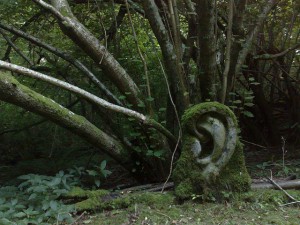 I’m a few weeks into the editing process and I have to say, it’s slow going. Since this is the second draft and I’m focusing on story structure and adding a subplot, there’s a lot of writing still to do, which requires me to switch back and forth from writing and editing brain. Who knew that could be so hard? For every few chapters that need to be edited, one needs to be written and I have to ground myself in the creative part of my brain again.
I’m a few weeks into the editing process and I have to say, it’s slow going. Since this is the second draft and I’m focusing on story structure and adding a subplot, there’s a lot of writing still to do, which requires me to switch back and forth from writing and editing brain. Who knew that could be so hard? For every few chapters that need to be edited, one needs to be written and I have to ground myself in the creative part of my brain again.
I’ve read a lot of advice about editing and to be honest, I’m still not really sure what I’m doing. The writing process, I get. A steady jog toward the end.
Editing seems to be all over the place.
Back and forth. Forward and backward. Bouncing around here and there. And for every tweak, I fear, I’ll have to read through the whole thing again to make sure everything is still working. Story Engineering helped me get on the right track but story structure is only the first hurdle.
I have a few more editing books on my to-read list, there are a couple of online classes I’d like to take later this year and I read blogs religiously. And it’s all a bit intimidating. Reading my manuscript out loud? Reading it backwards? Highlighting every sentence? I want my manuscript to be perfect more than anyone but at this rate, will I ever be done?
If there’s anything I’ve learned from the drafting process it’s this: each writer has to work in his or her own way. And this is what gives me hope for editing. I haven’t yet mastered the art of editing but so far there is one thing that’s working for me. Listening to the story. Feeling it’s beats. Recognizing when something is missing or when I’m saying too much. It’s not a perfect process and it’s hard to quantify but I find that when I listen to my story, I don’t need writing tricks or graphs or colored pens (although, I do like the colored pens). The scene talks to me and it tells me what it needs. And for now, that’s best trick I have.
What gets you through editing? Do you have any tips?
Photo by Colin Mutchler
The only taste of editing I have had is the bit that I try to do as I write. It is a monster that I am dreading fighting. Hope things work out for you. Listening to the story, seems to me, is a big chunk of the editing process. Here’s to a speedy finish for you! 🙂
Thanks! That’s what I’m hoping. I know there will be more drafts, breaking it down further but for this one, listening to my story is all I can do.
Sorry, so no helpful tips from me since I’m not even close to that stage yet. 😛 Just wanted to wish you good luck!
Thanks so much, Linda!
It takes me a long time to edit. I’ll share my steps with you here, but know that in practice I do a little of this with each pass – it’s just that with each pass I try to concentrate most on certain things. First I do the best I can to get the story in the correct order. My first drafts are often all over the place, despite my best intentions. Once the story is down, I work on deepening the characters and their relationships. Then I send it to my critique partners and make changes. Then I concentrate on the writing, on the characters’ voices, on building in more tension and conflict, on the pacing. Then I use AutoCrit, which has proven a huge timesaver for me. It’s not free, but it’s not expensive. It’s a good value. It points out overused words, pacing, and much more. I plug in each chapter. Then I read it aloud because my ears catch a lot of things my eyes miss. When it’s as good as I can make it, then I send it to an editor to get the overall focus of where it needs strengthening and cutting and deepening and letting go. Then I do those things. All of this before any queries or any contests. With an 85K novel, it takes a while. I don’t much write short anymore, but the process is much the same – minus the editor part. But we’re all different. Maybe this will give you an idea or two.
Thank you so much for sharing our process, Carol. I always feel like I learn a lot from hearing about how other people work. It does sound like a lot but I can see how every one of these steps is necessary.